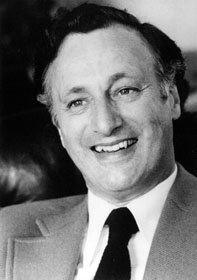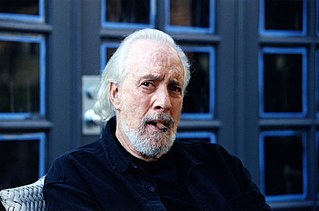A Quote by Julian Barnes
It's easy, after all, not to be a writer. Most people aren't writers, and very little harm comes to them.
Related Quotes
It feels as though a very disproportionate number of main characters are writers, because that's what the writer knows. Fair enough. But nothing bothers me more in a movie than an actor playing a writer, and you just know he's not a writer. Writers recognize other writers. Ethan Hawke is too hot to be a writer.
In English, you can find writers with a wonderful sense of humor, like Oscar Wilde. But in the French language, this is very special, and de Sade is one of the very brave writers with a sense of humor. But most people don't understand that. When they read de Sade, they take it seriously. They say, "Oh, what an awful man!" He is really a very unknown writer.
We have a full writers' room, and with something like 'MyMusic,' we've scripted it out with professional writers. There is some very basic improv from the actors, but everything is very to the letter, so it's easy to edit down to an episode. There are fun little things an actor might throw in there.
I do think that the idea of writer's block can be very self-defeating for most writers because it's taking a lot of things that are not only real problems, but that are manageable, solvable problems if you look at them in an individual fashion, and lumping them under the umbrella of something mysterious and vague, which makes it very, very difficult to address what's going on.
There were always men looking for jobs in America. There were always all these usable bodies. And I wanted to be a writer. Almost everybody was a writer. Not everybody thought they could be a dentist or an automobile mechanic but everybody knew they could be a writer. Of those fifty guys in the room, probably fifteen of them thought they were writers. Almost everybody used words and could write them down, i.e., almost everybody could be a writer. But most men, fortunately, aren't writers, or even cab drivers, and some men - many men - unfortunately aren't anything.
Relative to the power that movie stars have, and producers and directors, I would say that even the most respected screenwriters have very little power in Hollywood. I don't think it's in the nature of the writer's profession to go after that power. Writers spend their time alone, hallucinating, writing, making these things up, while these other people are out schmoozing, making connections, meeting each other. They are trotting the corridors of power and making sure they've put their own imprints in it. And they're promoting themselves and their images, as they should.
Oh, I love labels, as long as they are numerous. I'm an American writer. I'm a Nigerian writer. I'm a Nigerian American writer. I'm an African writer. I'm a Yoruba writer. I'm an African American writer. I'm a writer who's been strongly influenced by European precedents. I'm a writer who feels very close to literary practice in India - which I go to quite often - and to writers over there.
I think that very often younger writers don't appreciate how much hard work is involved in writing. The part of writing that's magic is the thinnest rind on the world of creation. Most of a writer's life is just work. It happens to be a kind of work that the writer finds fulfilling in the same way that a watchmaker can happily spend countless hours fiddling over the tiny cogs and bits of wire. ... I think the people who end up being writers are people who don't get bored doing that kind of tight focus in small areas.
My sense was that most of the elected officials in Washington - in their heart of hearts - really believe that the system can't be too bad because it produced them. And when people in power can stay in power they do very little to tinker with the apparatus that put them in power. We've seen it time after time after time.
There's the fact that American fiction is basically the most apolitical fiction on the globe. A South American writer wouldn't dare think of writing a novel if it didn't allude to the system into which these people are orchestrated - or an Eastern European writer, or a Russian writer, or a Chinese writer. Only American writers are able to imagine that the government and the corporations - all of it - seem to have no effect whatsoever.
I told [a big investor in The New Yorker] - I was complaining the way writers complain.I said`[Bill Shawn] pays very well, but a lot of my pieces don't get in,' and that was true of most of the writers there.But he pays you for them, that was very nice of him. This guy didn't think it was very nice. He figured, `Oh, my God, that's more of my investment gone,' and paying money to writers for not printing them. That became, apparently, one of his weapons against Shawn when he - in the corporate skirmishes that went on. It was a bad mistake on my part.






































